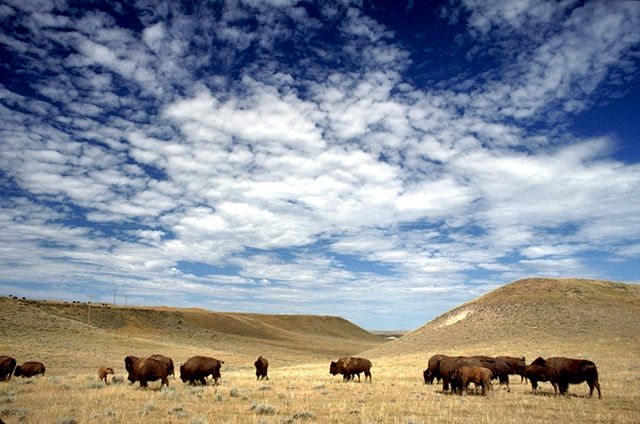
Business leaders and conservation groups are pushing a strategy to combat wildlife habitat loss and species decline. (USDA)
Eric Galatas, WYOMING NEWS SERVICE – A task force including business and energy leaders along with conservation groups is pushing a strategy to combat wildlife habitat loss and species decline. 
The blue-ribbon panel recommendations include tapping $1.3 billion in royalties from energy production on public lands to protect non-game species.
Former Wyoming Gov. David Freudenthal says the struggle to keep the greater sage-grouse off the endangered species list has shown it pays to be proactive.
“Wyoming for more than a decade has spent an immense amount of money trying to manage the sage-grouse issues,” says Freudenthal. “If something like this can get passed, then going forward maybe we can address other species without having to take additional tax dollars out of the general fund.”
The panel warns if action isn’t taken, the list of federally threatened and endangered species could grow from nearly 1,600 today to thousands more in the future, which Freudenthal says would put up significant roadblocks to economic development.
Whit Fosburgh, president and CEO of the Theodore Roosevelt Conservation Partnership, notes hunters and anglers already help subsidize management of game species through licenses and other fees.
And since state fish and wildlife agencies already are being asked to do more with less, he says another source of funding is needed to protect the wildlife that draws people to the outdoors.
“We need to shine the spotlight so everybody, the people who obviously hunt and fish, but there are a lot of others that just enjoy seeing fish and wildlife and nature out there, and it doesn’t come for free,” says Fosburgh. “We have to manage this stuff and if we don’t, we’re going to see it go away.”
To implement the plan, Fosburgh says it’s going to take pressure from states, industry and everyone who supports wildlife to move Congress to release a portion of the $13 billion collected each year in oil and gas royalties.

